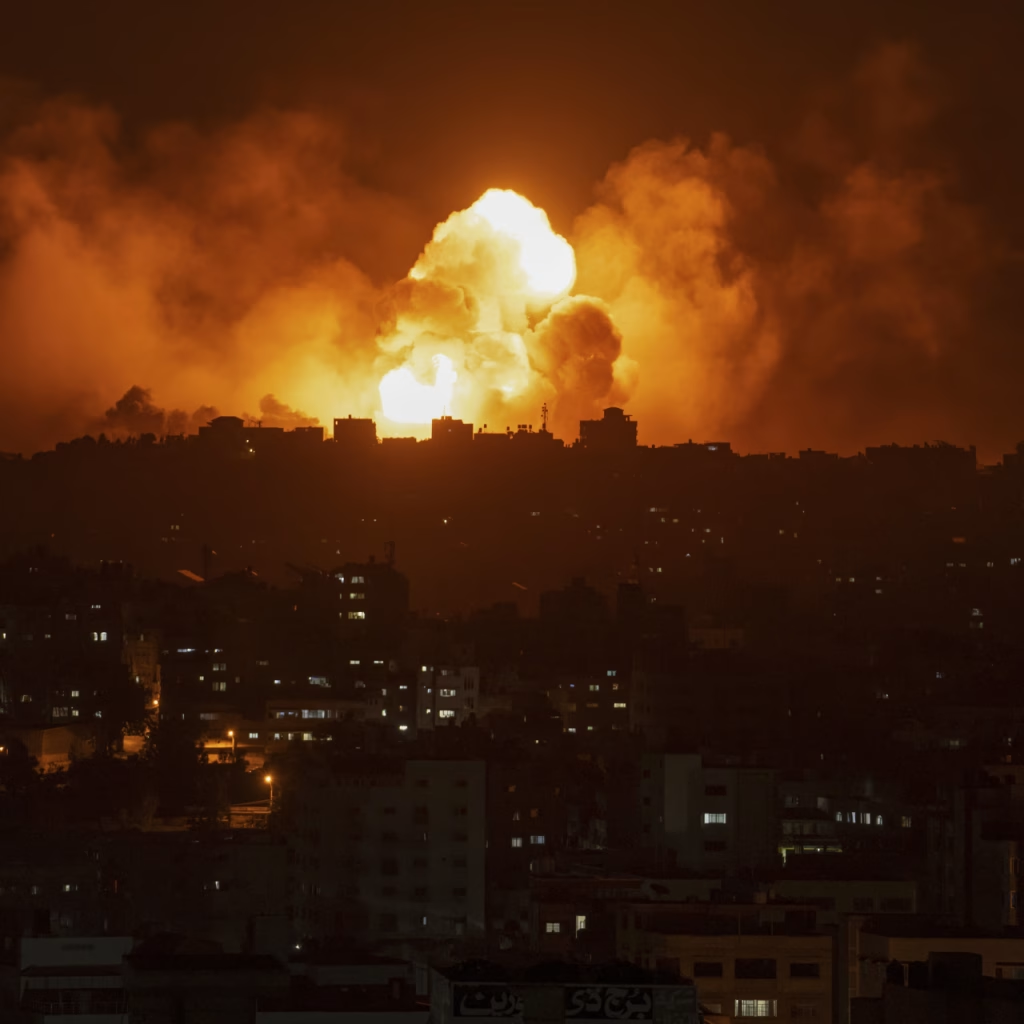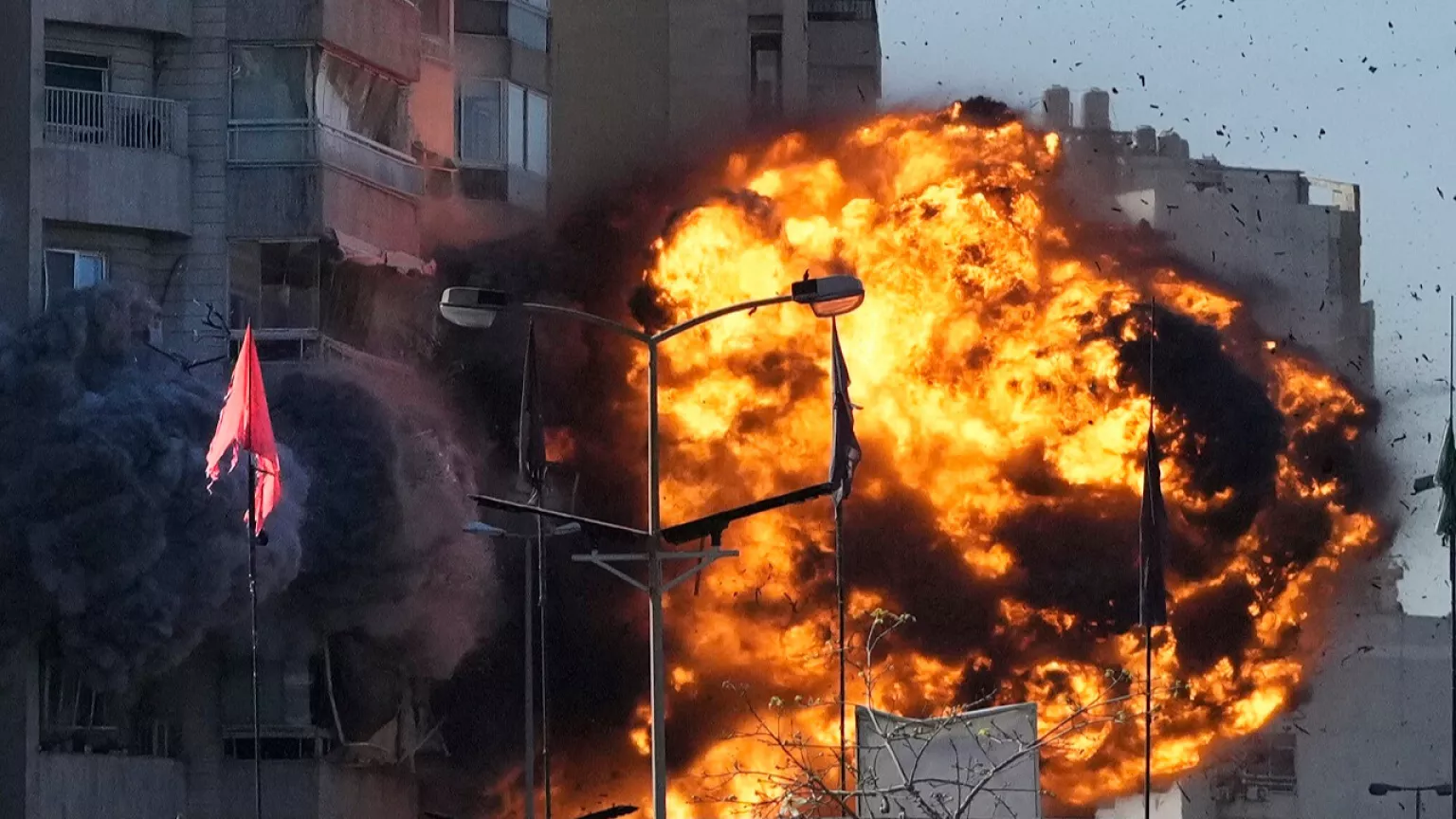Israel launched what it described as “preemptive” airstrikes on Iran early Friday, targeting military facilities and nuclear infrastructure, in a move that sharply escalated tensions in the region. The strikes came shortly after US President Donald Trump warned of a potentially “massive conflict” between the two arch-rivals.
Explosions were reported in the Iranian capital Tehran on Friday morning, according to state media. Iranian authorities said the country’s air defence systems were operating at “full capacity” in response to the attack.
In a statement, Israeli Defence Minister Israel Katz warned of an imminent retaliatory strike from Iran, prompting Israel to declare a state of emergency. “Following the State of Israel’s preemptive strike against Iran, a missile and drone attack against the State of Israel and its civilian population is expected in the immediate future,” Katz said.
Oil prices surged by up to six percent in the wake of the strikes, reflecting market anxiety over the growing instability in the Middle East. The operation followed recent warnings from President Trump, who suggested that an Iranian attack on Israel appeared increasingly likely. “I don’t want to say imminent, but it looks like it’s something that could very well happen,” Trump told reporters on Thursday.
Although Trump said he believed a “pretty good” deal with Iran over its nuclear programme was within reach, he admitted that any Israeli military action might jeopardise the chances of success. “I don’t want them going in, because I think it would blow it,” he said, before adding ambiguously, “Might help it actually, but it also could blow it.”

A US official later confirmed that the United States had no involvement in Israel’s military operation.
The United States announced on Wednesday that it would reduce staff levels at its embassy in Iraq, a nation that has long served as a battleground for US-Iran tensions.
Israel has long viewed Iran as a grave threat, particularly under its clerical leadership. Israeli Prime Minister Benjamin Netanyahu has adopted an increasingly aggressive posture since the Hamas-led October 7 attack on Israel, which led to Israel’s recent wide-scale bombardment in Gaza. Israel accuses Iran of arming and supporting militant groups in the region, including Hamas.
Western powers, alongside Israel, have repeatedly accused Iran of seeking to develop nuclear weapons, an allegation Tehran denies. The strikes came days after the International Atomic Energy Agency (IAEA) censured Iran for failing to meet its international obligations, prompting renewed calls from Israel for global action.
The IAEA’s resolution could pave the way for European powers to trigger the “snapback” mechanism before it expires in October. This would reinstate UN sanctions lifted under the 2015 nuclear deal brokered during Barack Obama’s presidency—a deal from which Trump unilaterally broke in 2018, reimposing severe sanctions on Iran.
In response to the IAEA’s criticism, Iran’s nuclear chief Mohammad Eslami condemned the resolution as “extremist” and claimed it was driven by Israeli pressure. Tehran announced plans to open a new uranium enrichment facility in a more secure location and upgrade its enrichment capabilities.
According to Iranian officials, the Fordo nuclear facility will soon operate sixth-generation centrifuges, replacing the older first-generation machines. According to some reports, Iran is currently enriching uranium to 60 percent purity—well above the 3.67 percent limit set under the 2015 deal, and edging closer to the 90 percent threshold required for nuclear weapons.


 Trending
Trending 